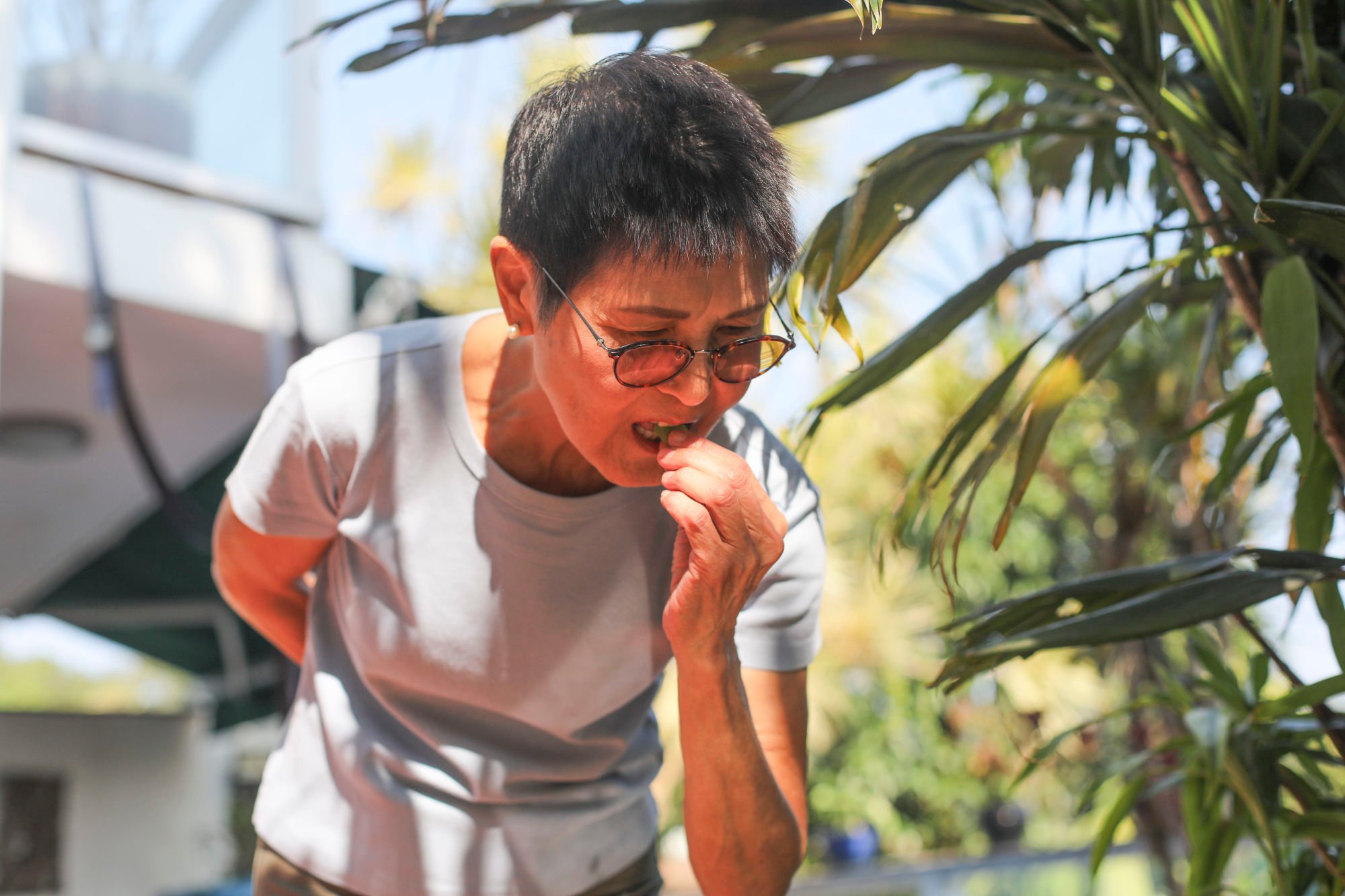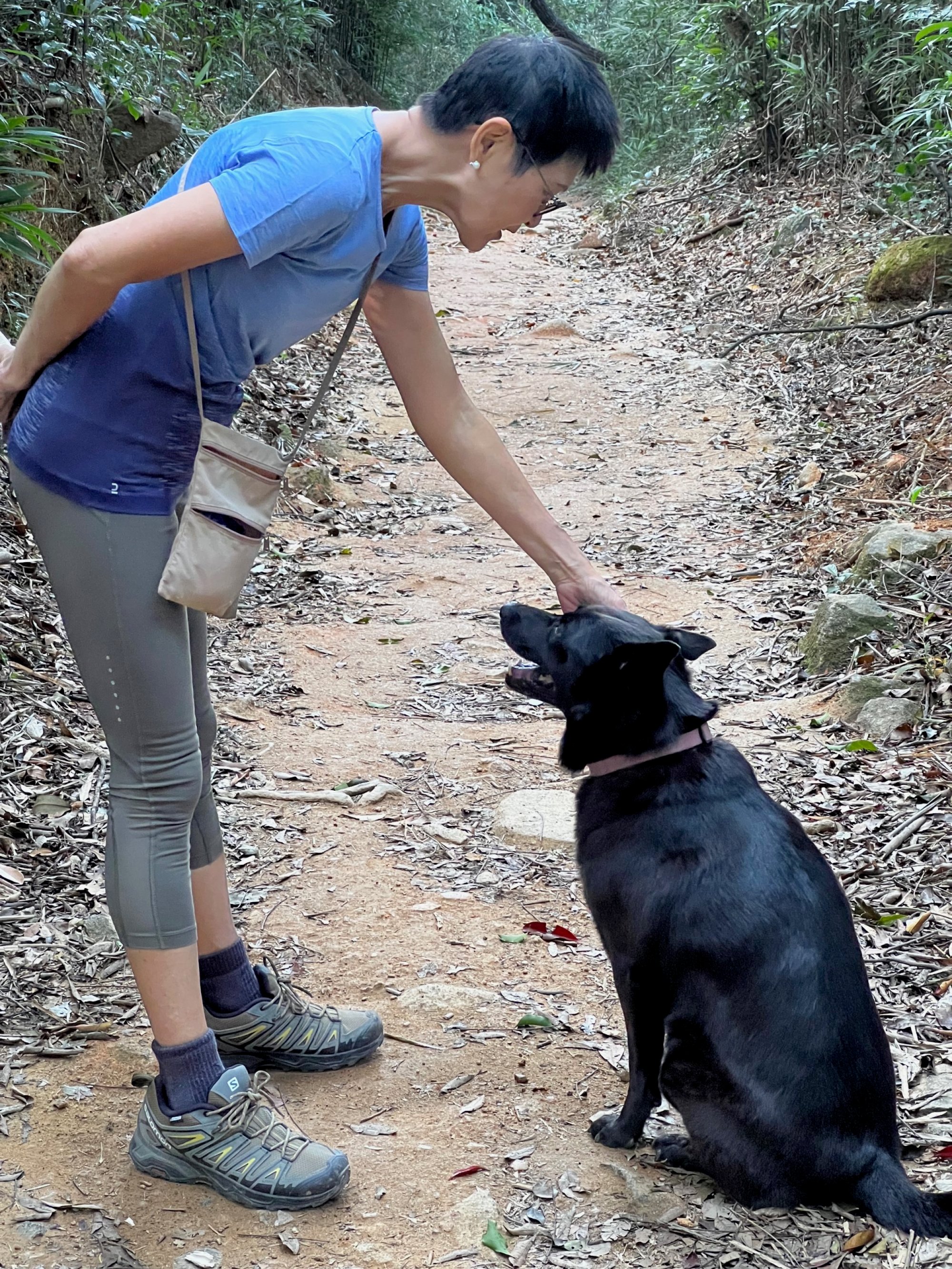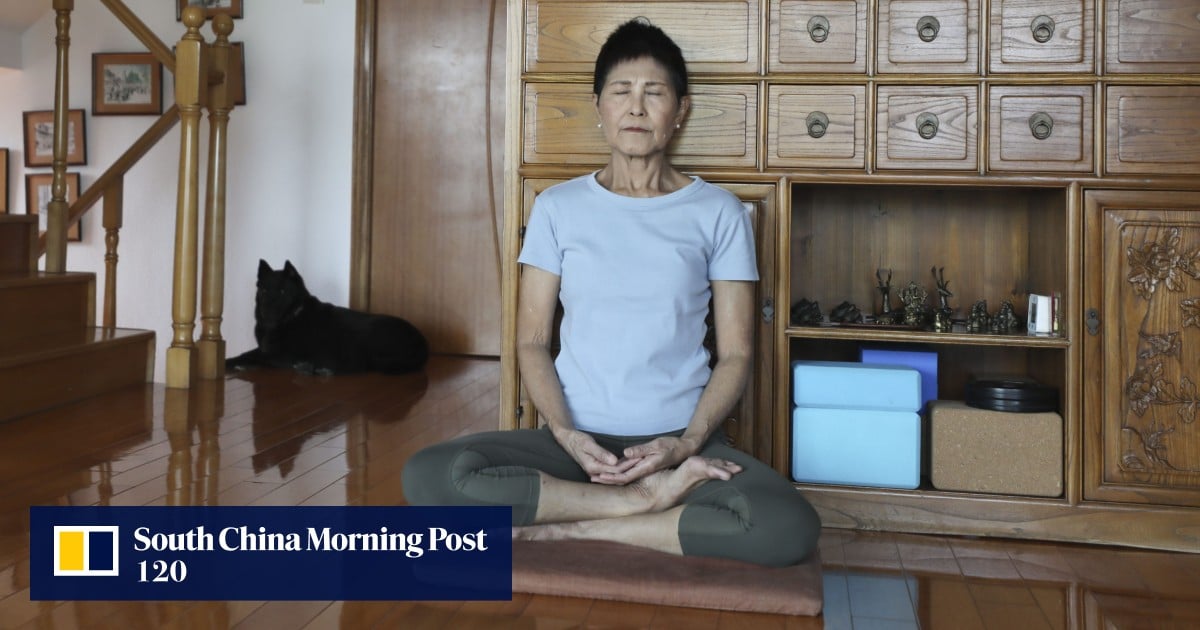
“Both my siblings believed in the body’s natural ability to heal and did not undergo conventional treatment.”
More than an apple a day: how eating more fruit and veg can keep us healthy
More than an apple a day: how eating more fruit and veg can keep us healthy
She originally chose to follow their path, having alternative cancer treatments.
“I did not want the quality of my life to deteriorate because of the side effects of chemotherapy and radiation.”
Instead she found strength in Buddhism, and focused on exercising regularly and practising yoga and meditation. She adopted a pescatarian diet – eating fish but not meat – and eliminated dairy products and sugar.

By 2009, two years after her initial diagnosis, the lump in her left breast had grown larger. She kept up her natural approach to living with the illness.
She started having coffee enemas, in which a mixture of brewed coffee and water is inserted into the colon. A key part of the Gerson Therapy, which was developed by Dr Max Gerson in Germany in the 1930s for the treatment of cancer and other degenerative diseases, coffee enemas are also used in some traditional Asian medicine practices.
Free yoga classes help cancer sufferers and survivors, drug addicts
Free yoga classes help cancer sufferers and survivors, drug addicts
“I had seen my siblings take coffee enemas and how much it helped them. That encouraged me to give it a try. I felt so much lighter after them,” says Siriluck, who had them three times a week for four years.
Authors of a review of available research into the safety and effectiveness of self-administered coffee enemas published in the journal Medicine in 2020 do not recommend this treatment, however, given unresolved issues surrounding its safety and insufficient evidence with regard to its effectiveness.
Brain cancer survivor credits coffee enemas, affirmations, meditation
Brain cancer survivor credits coffee enemas, affirmations, meditation
In 2011, Siriluck had a lumpectomy to remove tissue from her left breast. During the operation, the doctor discovered that the cancer had spread to all the lymph nodes in her left arm, and they were removed.
In May 2013, a PET scan revealed that the cancer had metastasised to her bones, lung and liver. To the despair of her family and doctors, she was still reluctant to undergo chemotherapy.
“My husband was very worried for my health when I did not choose conventional treatment,” Siriluck says. He agreed to support her, whatever methods she chose.
He suggested she contact Dr Alexander Herzog, a cancer doctor in Germany. Under his supervision she underwent hyperthermia, a treatment in which heat is used to induce high temperatures (40 degrees Celsius, or 104 degrees Fahrenheit) to help kill the cancer cells but not healthy tissue.
The US National Cancer Institute notes that hyperthermia can help other cancer treatments, such as chemotherapy and radiation therapy, work better. It requires special equipment and expertise that is not widely available yet, it says on its website, adding: “It is also not clear if it helps people live longer.”
Breast cancer survivor on how exercise is crucial to battling the disease
Breast cancer survivor on how exercise is crucial to battling the disease
Siriluck also agreed to have low doses of chemotherapy with the hyperthermia treatment.
“I had no side effects. All through the treatment I would recite mantras. It kept my mind focused and relaxed,” she says.
In 2015, when the cancer spread to her breastbone, Siriluck relented and underwent radiotherapy. Soon afterwards, new lesions were found in her lower spine and left thigh bone.
Despite the cancer spreading, Siriluck has never felt discomfort or pain, apart from some side effects of chemotherapy and short periods of fatigue. She attributes this to the mental strength she develops from yoga, meditation and Buddhism.
‘The doctors were surprised’: how Iyengar yoga helped breast cancer survivor
‘The doctors were surprised’: how Iyengar yoga helped breast cancer survivor
In 2013, a friend introduced Siriluck to Iyengar yoga, created by the late yoga master B. K. S. Iyengar. It had such an impact on her that she underwent a two-year teacher training programme from 2017 to 2019, and now practises five times a week.
“Yoga made me understand the connection between my mind and my body, kept me physically strong and built my immunity,” she says.
Sarvangasana (shoulder stand) and sirsasana (headstand) are her favourite poses.

In 2018, a friend suggested she try a combination of two herbs used in traditional medicines and known for their anti-inflammatory properties: Shefflera leucantha, known as the umbrella tree, and Artemisia lactiflora or white mugwort.

“I would make a concoction of the herbs and drink it every day, without fail for a year. It was bitter, but I persisted,” she says.
In November 2019, a PET scan showed the thigh bone lesion had gone. “The doctor was puzzled that the cancer had gone from that area,” she says.
In December 2020, though, another scan revealed that the cancer had spread to Siriluck’s peritoneum – the membrane that lines the abdominal cavity. She underwent 10 rounds of chemotherapy, losing her hair and developing mouth sores.
She began taking targeted drugs in March 2021 and continues taking them.
I think perhaps I should have undergone the conventional treatment when I was first diagnosed. Why was I so adamant? Then I tell myself that it is in the past
“Buddhism has given me immense strength. It enabled me to accept my situation as I understood that suffering and death is a part of life,” Siriluck says.
She spends 15 to 30 minutes meditating each night before going to bed.
“Meditation allowed me to observe my thoughts. It made me realise that there is no point living in the past or worrying about the future. The present moment is all I have.”
She’s made her peace with terminal cancer – but not with her lack of choice
She’s made her peace with terminal cancer – but not with her lack of choice
What are her thoughts on resisting chemotherapy and radiation for so many years, only to finally undergo these treatments when the cancer had spread?
“I think perhaps I should have undergone the conventional treatment when I was first diagnosed. Why was I so adamant? Then I tell myself that it is in the past. The only way is to look ahead,” she says.
“My firm belief is that more than the illness, it is your attitude towards your illness and a strong belief in the natural healing power of the body that determines the outcome.”

